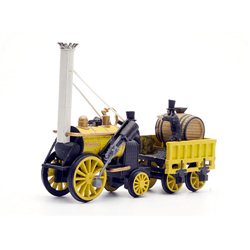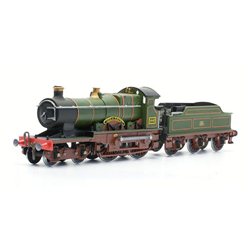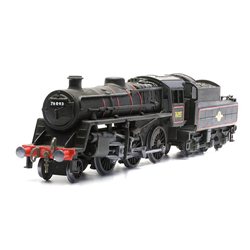Army Painter Quickshade is a special wash-like paint solution that will add shadows to models and miniatures quickly...
No products
Product successfully added to your shopping cart
There are 0 items in your cart. There is 1 item in your cart.
Search Tips
What are Kitmaster kits?
Kitmaster kits, produced by Rosebud Kitmaster from 1959 to 1962, were influential in British model railway history. These injection-moulded plastic kits covered a wide range of British locomotives and some international engines, known for their high-quality detailing. The company, based in Northampton, capitalised on the post-war enthusiasm for model railways by offering affordable and customisable kits for both beginners and skilled modellers.
Kitmaster initially offered an impressive variety of locomotive models, including famous engines like Stephenson's Rocket, City of Truro and Deltic.. They also created railway carriages, wagons and a few non-rail models, all prized for their accuracy and aesthetic quality. Unlike other kits of the time, Kitmaster models were designed to be static but could be modified for motorisation, appealing to hobbyists who wanted their trains to run on tracks.
Despite their popularity, Rosebud Kitmaster faced financial difficulties and sold the range to Airfix in 1962. Airfix continued production on some models but ultimately ceased the line, leading to a resurgence in demand among collectors. Today, original Kitmaster kits are cherished for their rarity and quality, with some items becoming valuable collector's pieces. The Kitmaster name was eventually acquired by Dapol, which continues to reissue some of these classic kits, alongside wagons kits acquired from Airfix.
In addition to their unique place in model railway history, Kitmaster kits represent a nostalgic era of British manufacturing. They also highlight the shift from metal to plastic kits in the model-making industry. For railway modellers and collectors, Kitmaster kits not only provide a historical connection but also the joy of preserving and engaging with vintage British craftsmanship. Whether displayed or adapted for modern layouts, these kits remain an enduring part of British modelling heritage.
Click here to receive the tips weekly in your mailbox. You can unsubscribe at any time.










